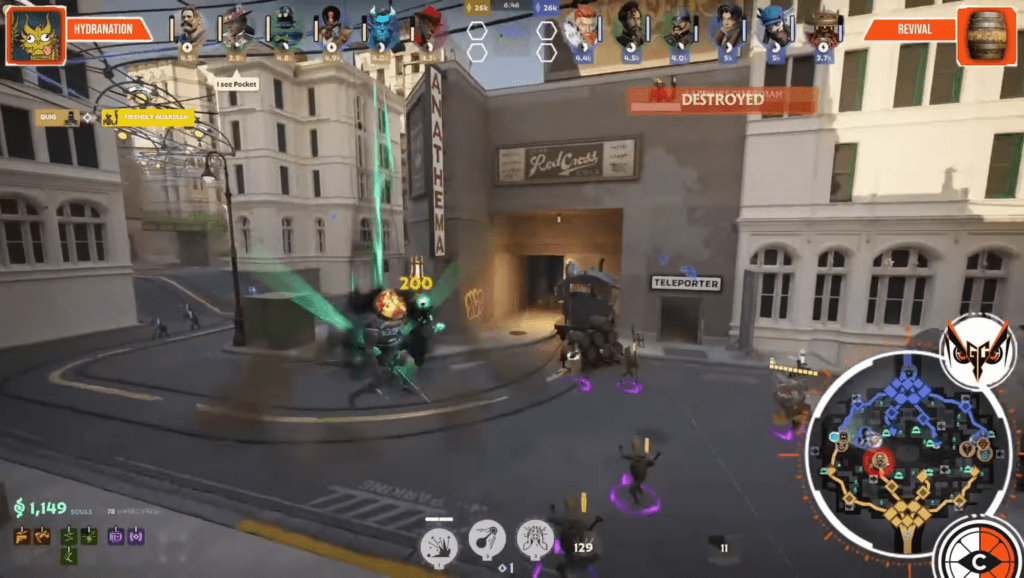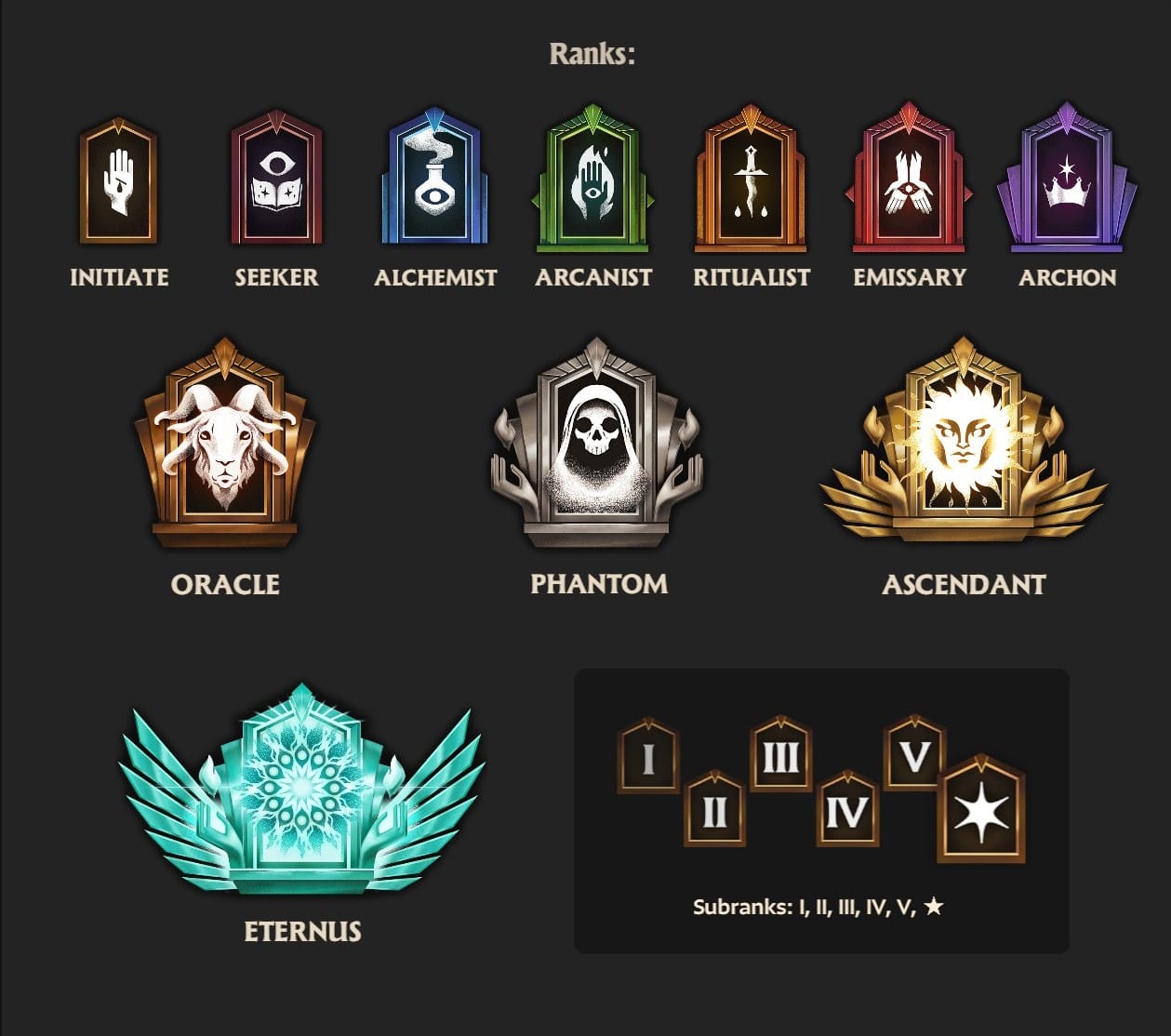
Deadlock, the latest game developed by Valve, is a high-octane blend of a MOBA and a hero shooter, making waves in the gaming world since its release. This innovative genre fusion combines strategic depth with adrenaline-pumping action, appealing to a wide range of players. While casual gamers rave about its immersive gameplay, the real question is whether Deadlock can carve out a niche in the highly competitive esports scene in 2024. Today, we’ll delve into insights from Liquipedia Deadlock Wiki and Esports Star Tenz, covering the game's potential for esports dominance.
Valve's support for Deadlock as a potential esport title has been steady, but challenges remain. Unlike established giants like Dota 2 or Counter-Strike: Global Offensive (CS), Deadlock is still in its infancy in the esports scene. Liquipedia, a reliable resource for esports information, paints a picture of a fledgling scene gaining traction but facing hurdles. As tournaments and leagues are yet to be fully established, Deadlock's competitive landscape is still developing.

Deadlock’s ranked mode is already creating buzz, offering players a tantalizing glimpse of competitive gameplay. The system’s Solo Queue-only matches and limited ranked hours foster individual skill display—a critical factor for esports appeal. Liquipedia highlights the importance of hero compositions, suggesting that optimal picks like Mo, Krill, and Kelvin can determine the match outcome.
Moreover, recent patches and updates have introduced new features that enhance the competitive experience. However, the ranked system's limited accessibility, confined to specific time zones, may hinder its global appeal. Valve will need to address these restrictions to attract a broader audience and support the growing esports scene.
Tenz, widely regarded as one of the top pro players in competitive gaming, has recently started playing Deadlock, sparking discussions about its esports potential. His comments offer a balanced perspective on the game's promise and pitfalls.


While Tenz acknowledges Deadlock’s innovative and enjoyable gameplay, he believes its steep learning curve and lack of spectator-friendly design hinder its viability as an esport. However, with the right adjustments and support, he sees potential for growth in the 2024 esports scene.
Deadlock’s ranked mode is a proving ground for future esports stars, but it’s not without flaws. As outlined in recent news, ranked matches rely heavily on hero composition and map awareness. A key strategy involves:

Despite these strategies, players often cite frustrations with spaghetti code bugs and inconsistent matchmaking. For Deadlock to thrive, Valve needs to produce regular patches to improve the quality-of-life features and polish its systems.
Deadlock has potential, but its journey to esports glory is fraught with challenges. Insights from the community and Liquipedia highlight several barriers:
The Deadlock community is vocal about its love for the game, but opinions on its esports potential are divided:

Optimistic Players: Many believe the game's unique mechanics—such as trooper waves and objective prioritization—set it apart in the competitive gaming genre. Some suggest leveraging community efforts to organize grassroots tournaments and leagues, especially in the UK, while Valve refines its approach.
The Skeptics: Bugs, matchmaking issues, and the perception of a lack of commitment from Valve have dampened enthusiasm. The term “spaghetti code” has become a meme among players, referring to bizarre glitches that sometimes decide ranked matches. Comments on forums and social media highlight these frustrations, calling for Valve to address them in the next big patch.
In October 2023, Valve officially announced that Deadlock would receive a massive update aimed at enhancing the esports experience. This announcement was covered by outlets like TheScore Esports and thescoreesports, highlighting the game's growing significance in the competitive scene.
Joshua "Tenz" Ngo, alongside other pro players and streamers, participated in playtesting sessions to provide valuable insights. Their feedback is crucial as Valve aims to refine the game before the 2024 competitive season.
Esports teams like FC Esports and Ball Gaming have shown interest in forming rosters for Deadlock competitions. Recently, two teams announced their participation in upcoming tournaments, signaling a growing competitive environment. The chief organizer of the Deadlock League commented on the positive developments, noting that the exchange of ideas between teams and organizers is crucial for the sport's growth.

With mobile gaming on the rise and games like Apex Legends expanding the genre, Deadlock's fusion of MOBA and hero shooter elements positions it uniquely in the market. The game could attract a wide range of players looking for a fresh experience.
However, the industry has faced challenges due to COVID, including layoffs and financial constraints. Esports organizers and teams have had to adapt, with some exploring new strategies like roster exchanges and focusing on online tournaments.
If Valve invests in marketing and addresses the current issues, Deadlock could become the next big esport by 2024. The community remains hopeful, eagerly awaiting the latest updates.
To achieve esports success, Valve must take deliberate steps:
Deadlock’s journey into the esports scene is still unfolding. With its innovative mechanics, a passionate player base, and backing from influencers like Tenz and other pro players, the game has a strong foundation. However, achieving esports dominance in 2024 will require Valve to address critical issues around balance, accessibility, and tournament infrastructure. Whether Deadlock will rise to rival giants like Dota 2 or League of Legends remains to be seen, but its potential is undeniable.
As the gaming community eagerly awaits Valve’s next moves, Deadlock could very well be the next big thing in esports. With strategic updates and community support, 2024 might be the year Deadlock breaks through.